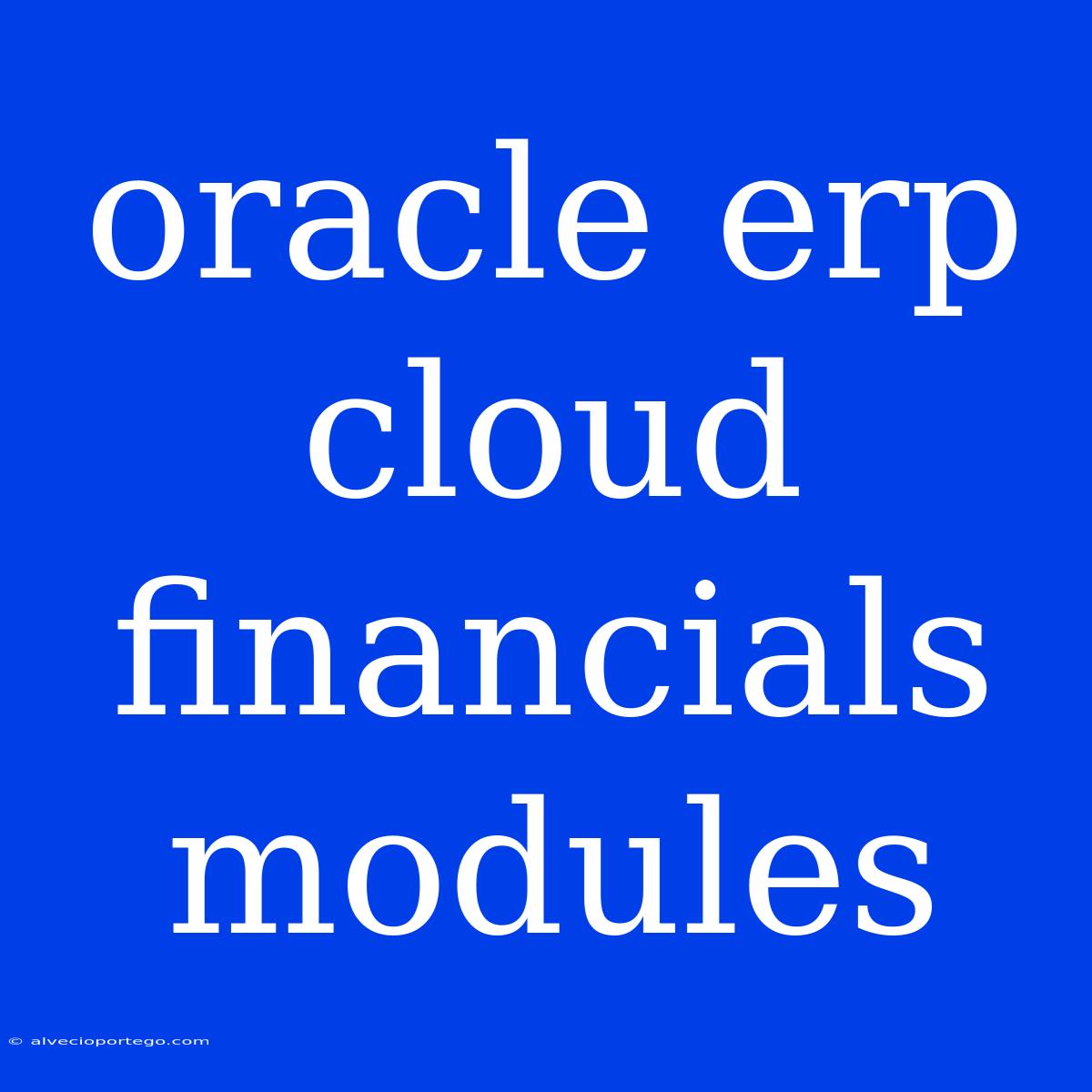Oracle ERP Cloud Financials Modules: A Comprehensive Guide
Oracle ERP Cloud Financials is a suite of cloud-based applications designed to streamline and automate financial processes within organizations. This comprehensive platform offers various modules tailored to address specific financial needs, enabling businesses to gain real-time insights, improve efficiency, and enhance decision-making.
Key Modules within Oracle ERP Cloud Financials:
1. Accounts Payable:
- Automated Invoice Processing: Streamlines invoice entry and approval workflows, reducing manual errors and processing times.
- Supplier Portal: Allows suppliers to submit invoices electronically, improving collaboration and reducing invoice discrepancies.
- Payment Automation: Enables automated payments to suppliers through various methods, including ACH, wire transfers, and checks.
2. Accounts Receivable:
- Customer Portal: Offers self-service options for customers, enabling them to view invoices, make payments, and manage their accounts online.
- Credit Management: Facilitates credit risk assessment and helps manage customer credit limits effectively.
- Cash Application: Automates the process of applying customer payments to invoices, reducing errors and improving cash flow.
3. General Ledger:
- Consolidated Reporting: Provides comprehensive financial reports, allowing for real-time visibility into financial performance across all business units.
- Multi-Currency Management: Simplifies managing financial transactions in multiple currencies, ensuring accurate accounting and reporting.
- Financial Consolidation: Enables consolidation of financial data from various subsidiaries, offering a unified view of the organization's financial position.
4. Cash Management:
- Cash Forecasting: Provides advanced forecasting capabilities, allowing for proactive cash flow management and investment planning.
- Bank Reconciliation: Automates bank reconciliation processes, reducing manual effort and enhancing accuracy.
- Cash Optimization: Helps optimize cash flow by identifying and maximizing short-term investment opportunities.
5. Fixed Assets:
- Asset Tracking: Offers comprehensive asset tracking capabilities, providing insights into asset location, condition, and depreciation.
- Depreciation Management: Automates depreciation calculations, ensuring compliance with relevant tax regulations.
- Capital Budgeting: Supports planning and managing capital expenditure, enabling informed investment decisions.
6. Revenue Management:
- Contract Management: Provides a central repository for managing contracts, ensuring compliance and tracking revenue recognition.
- Revenue Recognition: Automates revenue recognition processes, ensuring accurate and timely revenue reporting.
- Pricing Management: Offers tools for setting and managing prices, optimizing revenue streams, and improving profitability.
7. Budgeting and Planning:
- Scenario Planning: Facilitates building and analyzing various financial scenarios, enabling informed decision-making.
- Budgeting and Forecasting: Offers powerful tools for creating and managing budgets, as well as forecasting future financial performance.
- Performance Management: Enables tracking and analyzing key financial metrics, providing insights into performance trends and areas for improvement.
Benefits of Oracle ERP Cloud Financials:
- Enhanced Efficiency: Automates key financial processes, reducing manual effort and improving productivity.
- Real-Time Visibility: Provides instant access to financial data, enabling informed decision-making and proactive management.
- Improved Accuracy: Minimizes errors through automated workflows and integrated processes, leading to more reliable financial information.
- Increased Compliance: Ensures compliance with relevant financial regulations through integrated controls and reporting features.
- Scalability and Flexibility: Easily adapts to changing business needs and provides scalability for growth.
By implementing Oracle ERP Cloud Financials, organizations can gain a significant advantage in managing their financial operations, improving efficiency, and making data-driven decisions.

